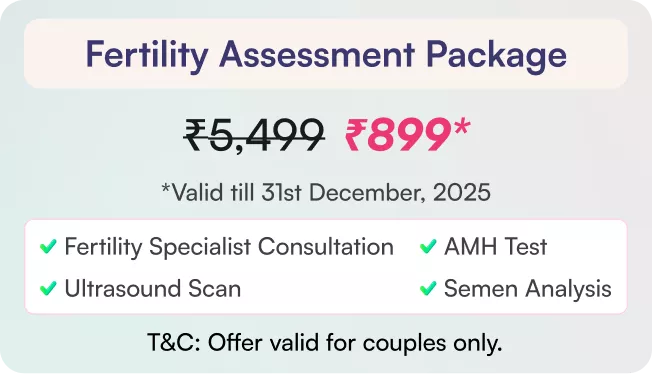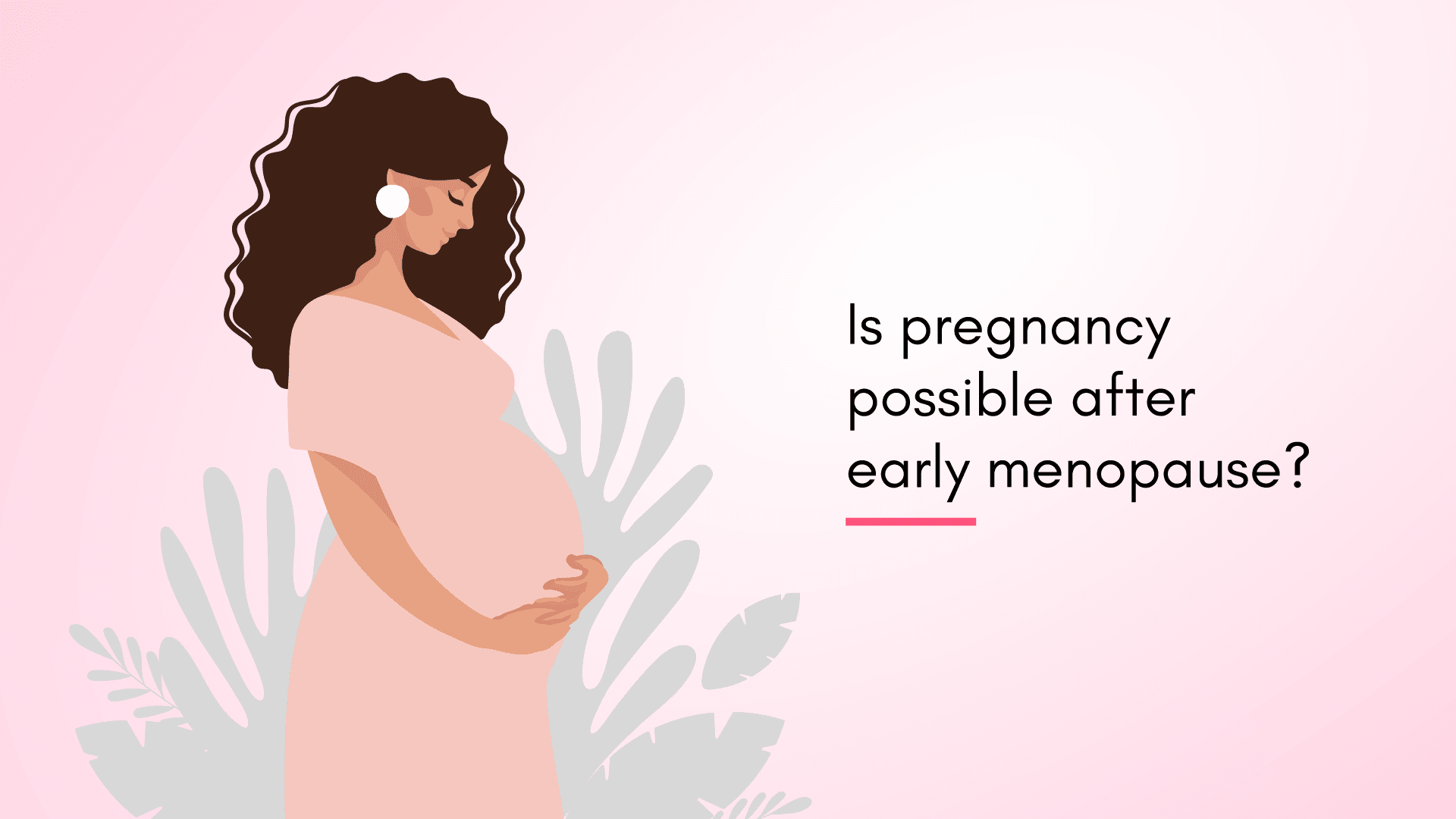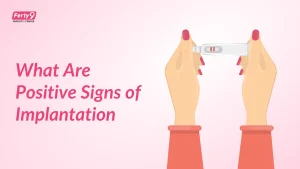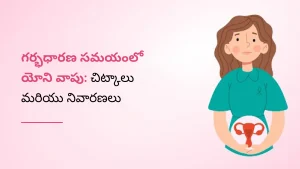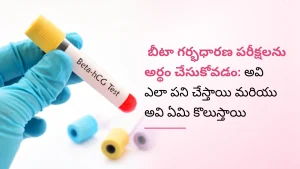Understanding Early Menopause
Menopause is a normal aspect of the ageing process. Sometimes known as the “change of life,”
menopause occurs 12 months following a woman’s final period. The menopausal transition usually starts between the ages of 45 and 55. It typically lasts seven years but can last up to fourteen. The duration of the symptoms might vary depending on lifestyle variables such as age, food habits, genetics, and race/ethnicity. The menopausal transition affects every woman in distinct ways. The body learns to use energy in new ways, fat cells alter, and women may acquire weight faster. You may notice changes in your bone and heart health, body form and composition, or physical function.
The menopausal transition, or perimenopause, refers to the years preceding menopause when women may experience changes in their monthly cycles, hot flashes, or other symptoms. Perimenopause produces significant changes in the levels of ovarian hormones estrogen and progesterone.
Causes of Early Menopause
Anything that harms your ovaries or prevents your body from producing estrogen might induce menopause. Most of the time, the cause is unknown. Early and premature menopause exhibit the same symptoms as menopause.
The causes of early or premature menopause are:
- Getting your first menstruation before the age of eleven
- There is a family history of early menopause
- Surgery to remove your ovaries
- A hysterectomy is a surgery during which your uterus gets removed
- Autoimmune disorders include rheumatoid arthritis, Crohn’s disease, and thyroid disease
- Infections such as mumps
- Having HIV/AIDS
- Cancer treatment options include chemotherapy and radiation.
Suggested Read: Fertility Preservation Options For Cancer Patients
Impact of Early Menopause on Fertility
Menopause occurs when you no longer have periods and your ovaries stop releasing eggs. After menopause, you will be infertile or unable to conceive naturally. If you are experiencing early menopause, you may still be able to conceive during perimenopause. This is the last stage of your menstrual cycle. Perimenopause refers to the years preceding menopause, during which a woman’s ovaries begin to exhibit symptoms of aging. Periods become less frequent, ovulation may become unpredictable, and estrogen levels start to drop. Perimenopause usually begins in a woman’s 40s, although it can also occur in her 30s, making it more difficult to become pregnant.
Can Pregnancy Occur After Early Menopause?
Once you reach menopause, your hormone levels will never again be in a suitable range for ovulation and pregnancy. Natural conception is not possible after menopause, but IVF has been successful in many cases.
Pregnancy During Menopause
Since your periods have stopped during the menopausal stage, it is not possible to conceive naturally. If you’re interested in having a child and you’re experiencing menopausal symptoms, consult your healthcare provider about fertility testing. Hormones linked to fertility, including follicle-stimulating hormone (FSH) and anti-mullerian hormone (AMH), can be tested. This can help you find out more about your chances of becoming pregnant in the upcoming years.
Pregnancy After Menopause
Since women won’t be able to ovulate after menopause, most individuals are unable to become pregnant naturally. However, with the help of assisted reproductive technology (ART), postmenopausal women may still be able to conceive.
Pregnancy Options After Early Menopause
Because you’re not ovulating, both early and premature menopause have an impact on your ability to conceive. It is still possible to become pregnant, though, until you have missed all twelve consecutive months of your menstrual cycle. Ovulation can sometimes occur in the years leading up to menopause or in cases of Primary Ovarian Insufficiency (POI).
Fertility Preservation
The practice of preserving eggs, sperm, or reproductive tissue with the purpose of using them to conceive biological children later on is known as fertility preservation. Individuals with specific illnesses, conditions, and life experiences that impact fertility may benefit from fertility preservation. Among them are those who have endometriosis, have been exposed to hazardous chemicals at work, possess fibroids in the uterus, are going to receive treatment for cancer or an autoimmune condition, and possess a hereditary condition that reduces future fertility.
Suggested Read: Fertility Preservation Options and Importance
Hormonal Treatments
To prepare your body for implantation and carry a baby, you will also require hormone treatment. Hormone replacement treatment (HRT) uses estrogen and progesterone to restore the hormones lost during perimenopause and menopause. Pregnancy is still achievable while on HRT, as it is unlikely to alter fertility.
Suggested Read:
The Role Of Hormonal Imbalances In Female Infertility
Assisted Reproductive Technologies (ART)
Egg Donation
The quality of a woman’s eggs decreases with age and drops dramatically after 37. Postmenopausal eggs are no longer viable, but there are still two options for IVF. You can utilize previously frozen eggs as well as fresh or frozen donor eggs.
Suggested Read: Innovations In Fertility Preservation And Egg Freezing Techniques
In Vitro Fertilization (IVF)
IVF is a particular kind of assisted reproductive technology (ART) that indicates a woman is assisted in becoming pregnant by means of specialized medical procedures. In vitro fertilization, or IVF, is the process of combining a man’s sperm and a woman’s egg in a laboratory. It is used to treat a number of infertility cases, especially in older women (advanced maternal age). In comparison to premenopausal women, postmenopausal women are more likely to develop both mild and serious pregnancy issues following IVF.
Psychological and Emotional Considerations
Due to societal alterations in roles and varying fertility-related attitudes, menopause can be a traumatic transition. Counseling sessions should be used appropriately to address psychological and emotional difficulties.
How Ferty9 Fertility Specialists Can Help You Achieve Pregnancy After Menopause?
Fertility treatments have advanced significantly over the years and have transformed the path to motherhood by providing new alternatives and hope to menopausal women with fertility issues. Ferty9 promises best-in-class success rates with our dedicated team of specialists, advanced technologies, and evidence-based practices. Qualified and supportive assistant doctors ensure effective treatment and will monitor your care throughout the fertility treatment procedure, delivering a personalized and comfortable experience.
Conclusion
Even though menopause lowers a woman’s chances of becoming pregnant, modern technology can help women achieve their goal of becoming parents. Especially with ART, fertility treatments have brought new hope to women with fertility issues. Most importantly, modern amenities at our Ferty9 centers provide excellent assistance. Individuals now have a broader choice of effective treatment options accessible, increasing their chances of successful conception and motherhood, even after menopause.
